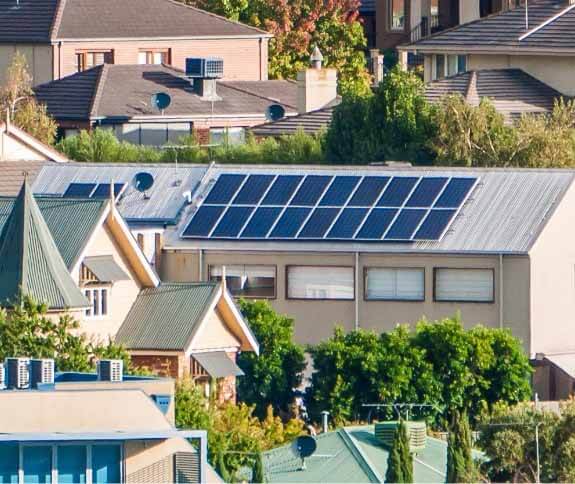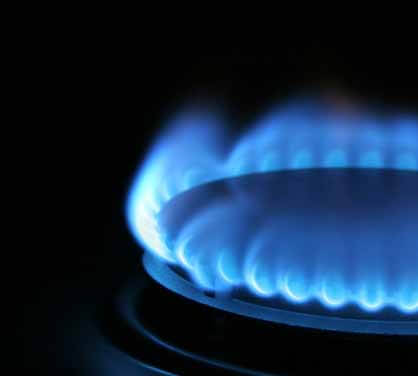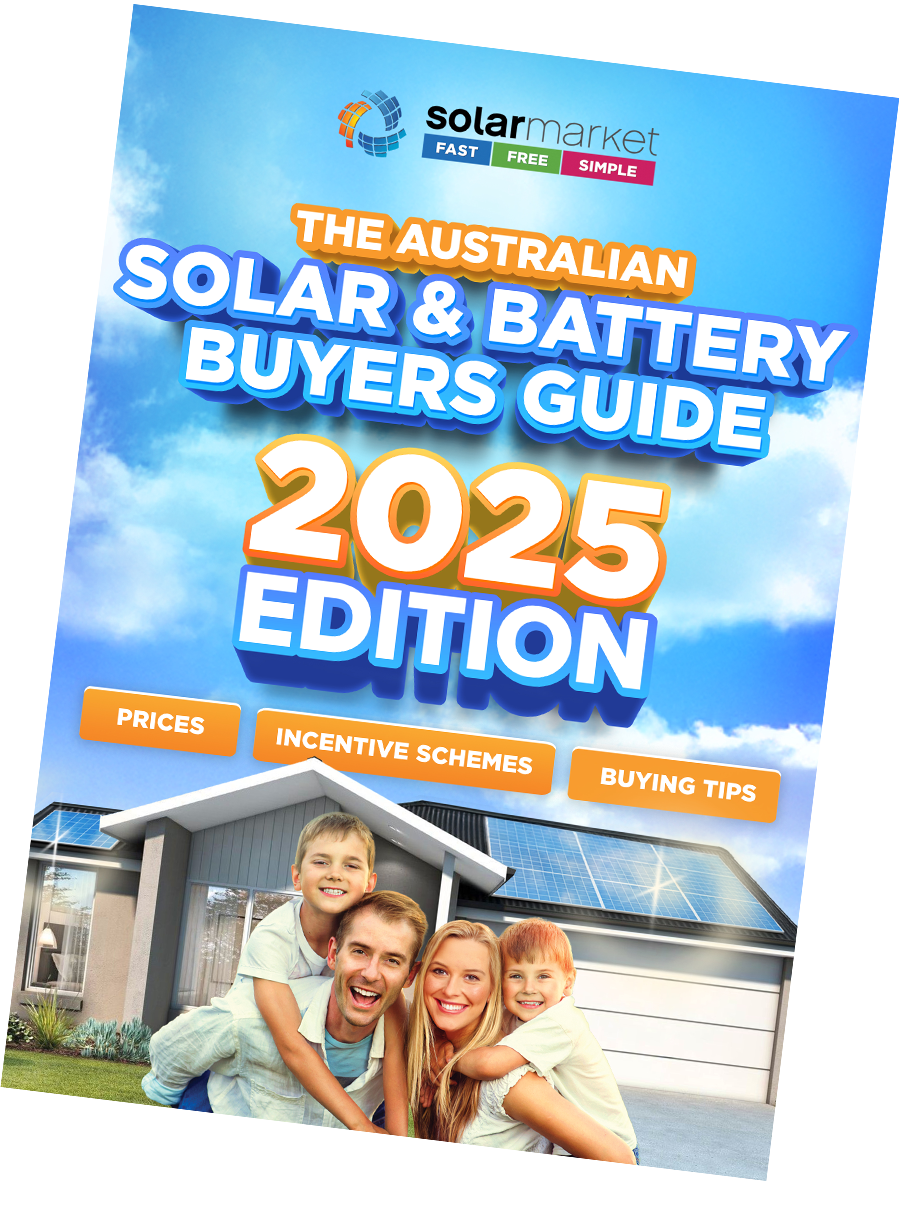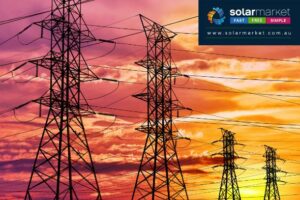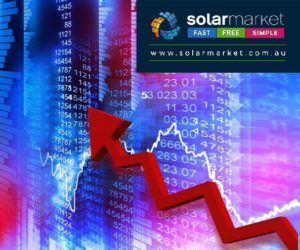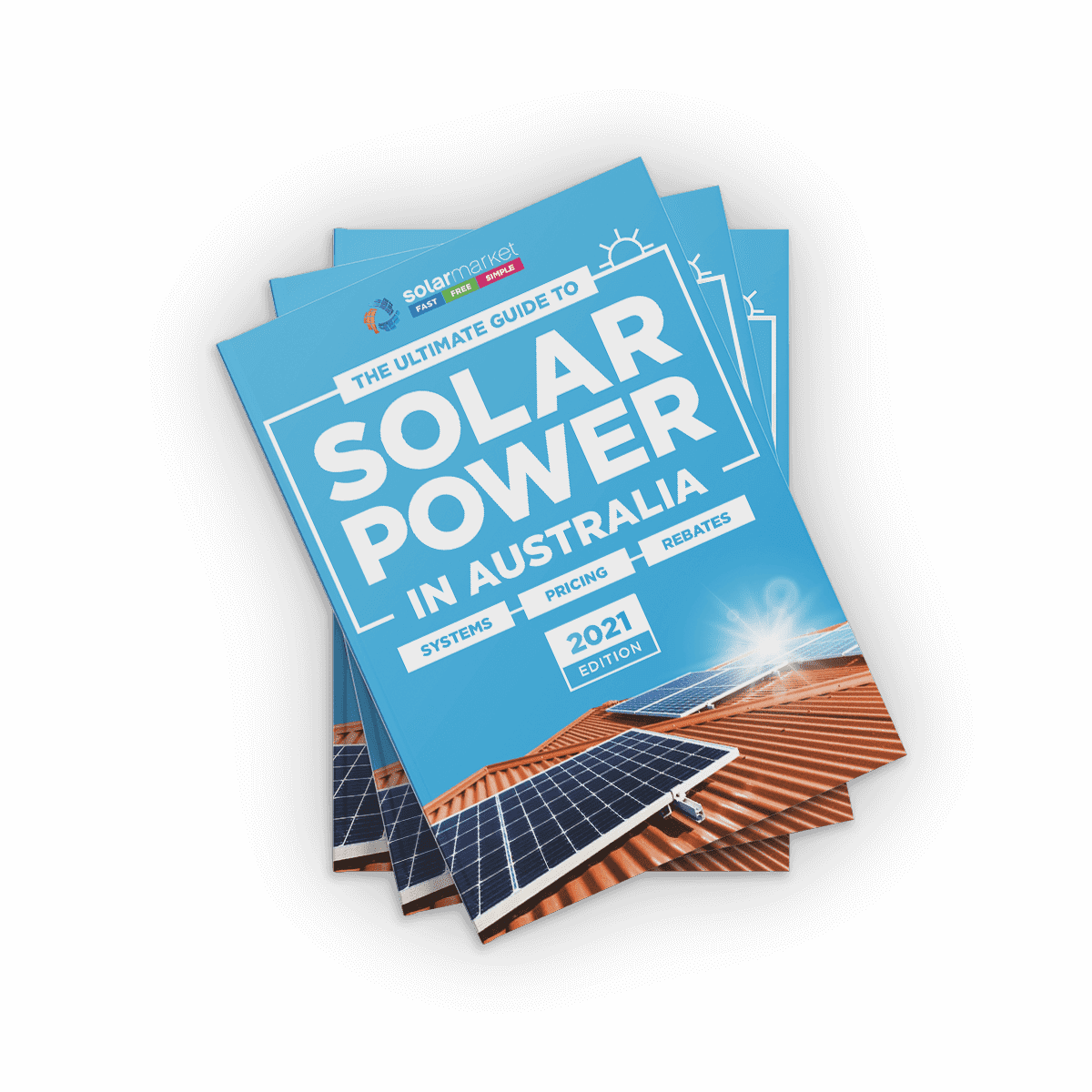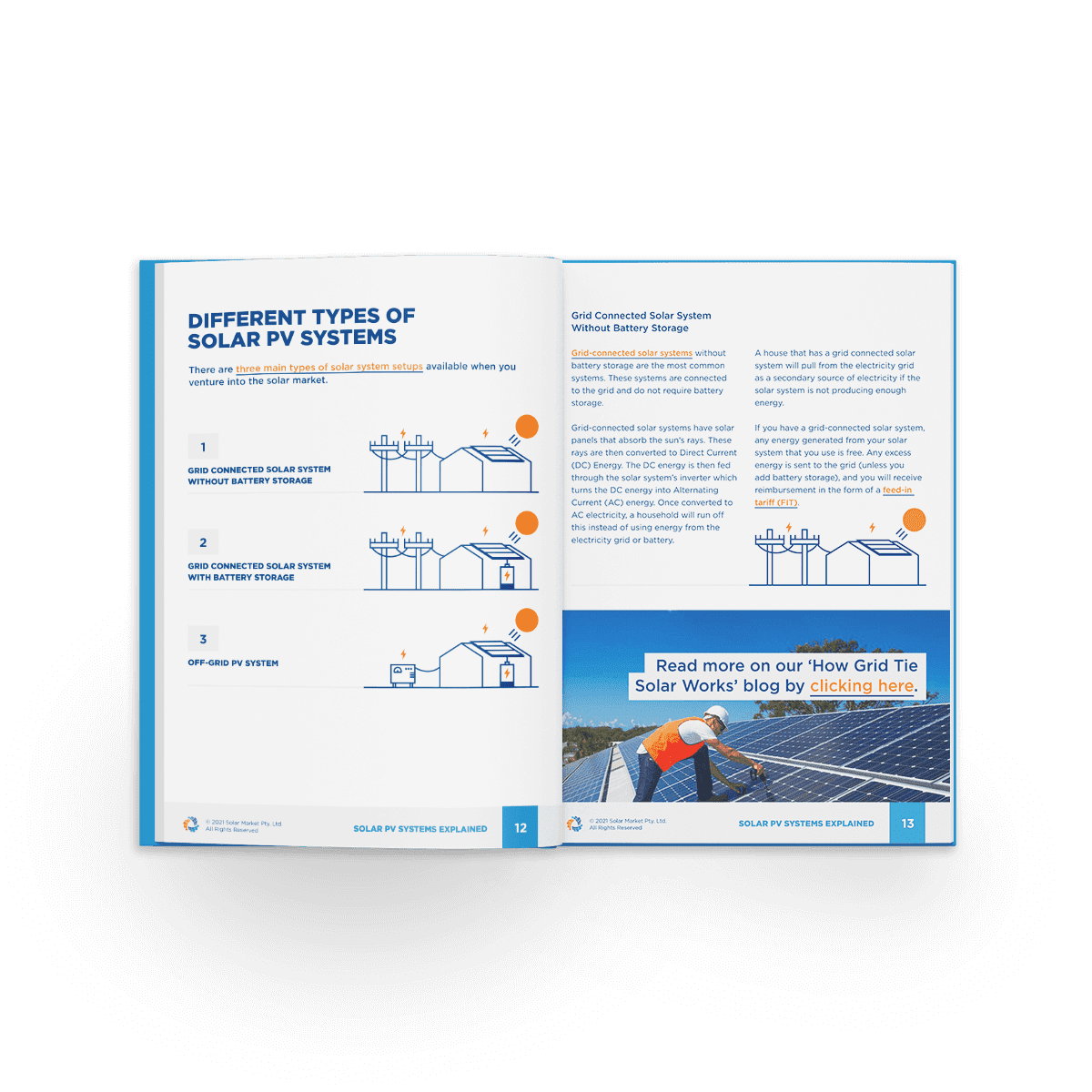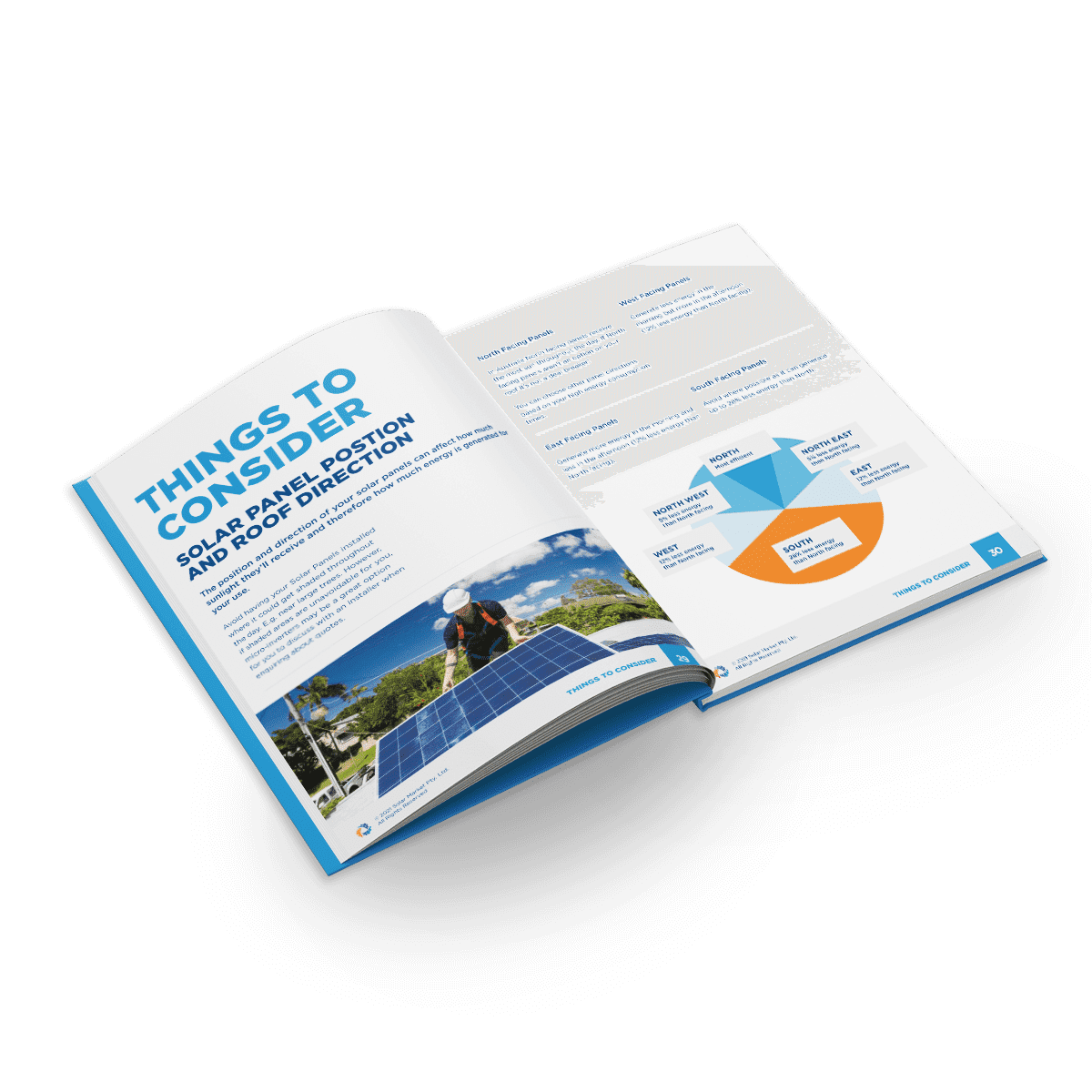What is a solar system?
A solar system (also referred to as a PV system or solar power system) is designed to convert sunlight into electricity using solar panels and other various components.
Solar systems installed at residential properties will typically have solar panels placed on the roof so they are exposed to the maximum amount of sunlight available. The solar panels absorb the sun’s rays which they convert to Direct Current Energy. The Direct Current (DC) Energy is then converted into Alternating Current (AC) Energy once fed through the solar system’s inverter.
Once converted to AC electricity a household will run off this instead of energy from the electricity grid or battery.
The amount of electricity a solar system can produce is dependent on the system size, environmental factors, daylight hours and efficiency of the system purchased.
A house that has a grid connected solar system will pull from the electricity grid as a secondary source of electricity, if the solar system is not producing enough energy. A household that has an off-grid solar system will pull from a generator or battery as a second source of electricity.
Note: A grid connected system can also have a battery installed depending on what inverter the solar system has.
Excess energy generated
If you have a solar system, any generated energy you use is essentially free and any excess energy is sent to the grid, unless you have installed battery storage. The excess energy that goes to the grid is then reimbursed to the solar system owner in the form of a Feed-in Tariff (FIT). This FIT should appear on your electricity bill as a credit.
A solar system typically performs at it’s best on a sunny, clear sky, 25 degree day but will still produce energy in cloudy overcast conditions. Solar panels do require some form of sunlight to absorb the suns energy and so do not produce energy at night.
Find out more about Grid Connected or Off Grid Systems Here
Energy usage habits
Best practice when you have a solar pv system is to alter your energy habits so that you use the majority of your electricity during the day, when your solar system is generating energy. Doing this will minimise your use at night which will reduce your reliance on the grid and further reduce your bills.
Get some tips on how to adjust your energy habits and maximise your solar savings
TIP: PV stands for the word “photovoltaic”, meaning; to convert light into electricity.
